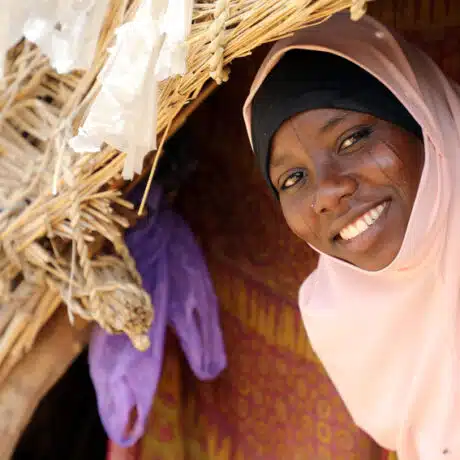News and Stories - Girls Rights - 6 February 2018
We grandmothers decided to put an end to FGM

70-year-old grandmother Elisabeth is one of a group of grandmothers in her village in Mali who are taking a stand against Female Genital Mutilation after the death of a young girl six years ago.
“Female genital cutting is the removal of part of a girl’s genitals. It’s a tradition: nothing more, nothing less. My granddaughter Sounkoura will not be cut; there are too many risks. As a grandmother, I am making that decision because I’m the one who’s expected to take her to be cut.”
Her daughter Aminata, 30, agrees: “I have spoken to my husband about this and we both agree that we don’t want Sounkoura to be cut. I feel very embarrassed talking about genital cutting in the presence of my mother, but it’s good to get it out in the open. I was always told that being cut makes childbirth easier, but it seems that this is not the case after all. I have no memories of the day that I was cut. I never had any problems with it later either, so I suppose I was lucky. Nowadays you get to hear much more about the risks.”
Elisabeth describes the moment she decided to abandon the traditional practice: “An incident changed my mind. Six years ago a girl died in the village after being cut. She bled for 24 hours. She was taken to the hospital, but she didn’t make it. Afterwards, we grandmothers gathered in the village square and we decided that this tradition must be stopped.
In villages like Elisabeth’s it’s grandmothers who take the responsibility of having their granddaughters cut.
Aminata explains how the younger generation are also helping to halt the practice: “They no longer take genital cutting for granted. My sister’s daughter, an older cousin of Sounkoura, was going to be cut on her parents’ wishes. However, my niece made it very clear to her grandmother Elisabeth that she didn’t want it to happen because she knew exactly what it entailed and that it was dangerous. Apparently, when she was a toddler she had accompanied her grandmother to an information meeting. While she was there, she had taken everything in and, small as she was at the time, she still remembered it all.”
Says Elisabeth: “I noticed before that the act of cutting is not exactly what you’d call hygienic. Granted, the cutter does use a new blade for every child, but the blade is not disinfected with alcohol. Sometimes you’ll see girls frantically scratching the wound afterwards, which is an obvious indication that it is infected.
It’s mainly because of the possible complications that we grandmothers no longer organise cutting ceremonies. I find this regrettable because the whole thing was something rather special to behold. The meaningful role that grandmothers play in the development of children will now have to change. But it’s a role that must be acknowledged and it must also be a better fit with the times in which we live.”
For International Day of Zero Tolerance for Female Genital Mutilation Plan International spoke to communities in Mali to highlight the men, women and young people taking a stand against the life-threatening practice.




